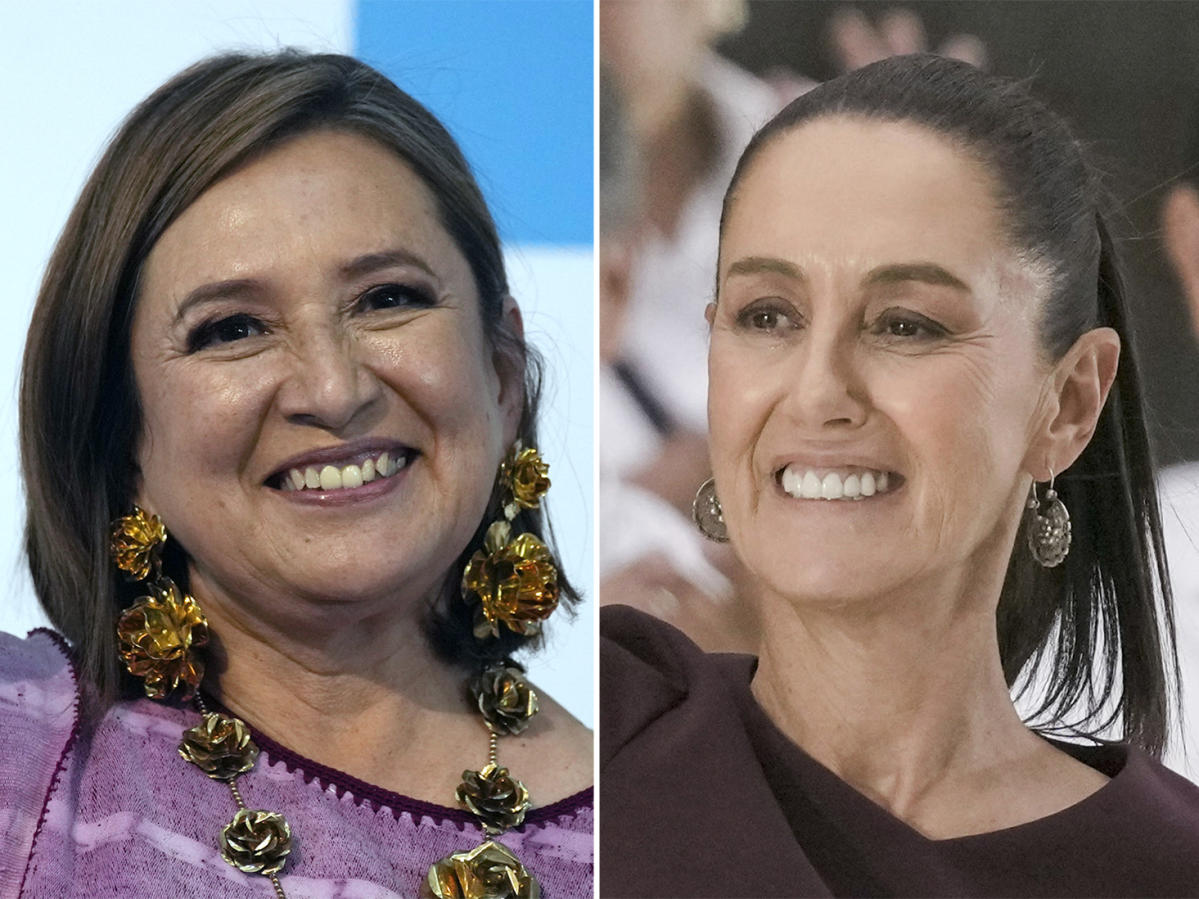MEXICO CITY (AP) — Voters choosing Mexico’s next president will decide Sunday between a former academic who promises to advance the current leader’s populist policies and an ex-senator and technology entrepreneur who promises to fight deadly drug cartels step up.
In an election that is likely to give Mexico its first female president, nearly 100 million people are registered to vote in the race to replace outgoing President Andrés Manuel López Obrador. Voters will also elect governors in nine of the nation’s 32 states, as well as choose candidates for both houses of Congress, thousands of mayors and other local posts.
The election is widely seen as a referendum on López Obrador, a populist who has expanded social programs but has largely failed to reduce cartel violence in Mexico. His Morena party currently holds 23 of the 32 governorships and a simple majority of seats in both houses of Congress. The Mexican Constitution prohibits the re-election of the president.
Morena hopes to gain the two-thirds majority in Congress needed to amend the Constitution and eliminate oversight agencies she says are cumbersome and wasteful. The opposition, part of a loose coalition, claims this would endanger Mexico’s democratic institutions.
Both major presidential candidates are women, and both would be Mexico’s first female president. A third candidate from a smaller party, Jorge Álvarez Máynez, follows far behind.
Mexico City Mayor Claudia Sheinbaum supports the Morena Party. Sheinbaum, who is taking the lead in the race, has pledged to continue all of López Obrador’s policies, including a universal pension for the elderly and a program that pays young people to apprentice.
Opposition presidential candidate Xóchitl Gálvez, whose father was native Otomi, rose from selling snacks on the streets of her poor hometown to start her own technology companies. As a candidate for a coalition of major opposition parties, she left the Senate last year to direct her anger at López Obrador’s decision to avoid confrontation with the drug cartels through his “hugs, not bullets” policy. She has vowed to go after criminals more aggressively.
Persistent cartel violence, along with Mexico’s mediocre economic performance, are the main issues on voters’ minds.
The Mexican peso has appreciated against the US dollar in recent years, mainly due to high domestic interest rates and a huge increase in money sent home by migrants. But gross domestic product has grown only about 1% per year on average under the current president.
López Obrador claims he has reduced the historically high murder rate by 20% since coming to power in December 2018. But that’s largely a claim based on a dubious reading of the statistics; the actual murder rate appears to have fallen by only about 4% in six years.
About 675,000 Mexicans living abroad are registered to vote, but only a small percentage have done so in the past. Voting is not mandatory in Mexico and overall turnout hovered around 60% in recent elections. That is comparable to the turnout in the recent American presidential elections. An exception was in 2020, when the meeting between then-President Donald Trump and future President Joe Biden pushed U.S. turnout to 67%, the highest in decades.
Just as the upcoming rematch between Biden and Trump in November underscored the deep divisions in the US, Sunday’s elections revealed how seriously public opinion in Mexico has been polarized over the direction of the country, including its security strategy and the manner in which the economy can grow.
In addition to the battle for control of Congress, the race for Mexico City – whose top position is now considered equivalent to a governorship – is also important. Sheinbaum is just the youngest of many Mexico City mayors, including López Obrador, who ran for president. Governorships in large, densely populated states such as Veracruz and Jalisco are also attracting interest.
In most of the country, polling stations open at 8 a.m. and close at 6 p.m. The first preliminary, partial results are expected at 9 p.m., after the last polling stations in different time zones have closed.
